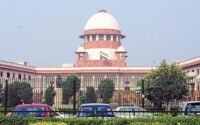PROVISIONS UNDER WHICH INDIA CAN EVACUATE ITS CITIZENS
This article has been written by Heena Jalan, a student of School of Law, KIIT University, Bhubaneswar.
The outbreak of the novel coronavirus has caused a multitude of difficulties and disruptions for the Indian citizens who are marooned in different countries of the world. The Government of India undertook evacuation operation of Indian citizens and also citizens of other countries namely, China, US, Japan, Bangladesh, Nepal, Maldives, Myanmar, South Africa, Peru, Iran, Madagascar, Sri Lanka, and Italy when the situation of Covid-19 in India was not daunting and there was no embargo on international travel by the government authorities.
The Government of India, Ministry of Health and Family Welfare issued press information dated 09.03.2020 wherein the GOI, enumerated the exact number of Indian and non-Indian nationals that have been evacuated through the operation of special flights. These evacuations were carried out with utmost precaution and prevention. The passengers were systematically placed in isolation facilities and camps for 14 days. On 1 February 2020, the first group comprising of 324 Indian citizens were evacuated from the city Wuhan, China who were later quarantined at ITBP Chawla camp and army facility in Manesar. On 3 February 2020, the second group comprising of 330 passengers were evacuated from Wuhan, China. On 26th February 2020, the Indian Air Force evacuated 112 commuters from Hubei, China. Subsequently, on 27 February 2020, the Indian Army evacuated 124 passengers from the Japanese Cruise Ship, Diamond Princess. So far, altogether the Government of India has evacuated 890 individuals from Covid-19 affected hotspots out of which 42 individuals belonged to different nationalities.
A Public Interest Litigation (PIL) has been filed in the Supreme Court seeking direction to the central government to collocate special international flights and evacuate the stranded Indian nationals in international jurisdictions. The plea seeks the court to urge the government to perform its constitutional and international legal obligations and duties. The plea further substantiates that the government is indulging in the selective evacuation of individuals and is arbitrarily discriminating against one group of the society. The stranded individuals in other countries are equally entitled to the protection of the government.
The Ministry of External Affairs has opined on the same issue that repatriation of individuals from Covid-19 infected countries to India will pose a great threat to the general public. Henceforth, the government has advised the Indian nationals to stay and put wherever they are for the containment of the further outspread of the virus.
The ministry has adopted adequate measures to ensure the safety and welfare of the Indian nationals abroad in the following ways such as a cell has been formed in the name of Covid-19 cell in the Ministry of External affairs to tap all the information and to also ensure accurate access of information by the Indian nationals. Further, there are various sub-committees that have been formed to deal with other regions of the world.
Nodal officers have been recognized and labeled in different posts to give assistance to stranded Indians. They have been asked to provide helpline numbers and emails that are functional 24*7. In accordance with this, helpline numbers and emails have been widely advertised in social, government portals, and public platforms. Where there are a large number of students stranded, the nodal officers are staying in constant touch with the respective universities and educational institutions to provide aid and assistance. The official Indian ambassadors in different countries are networking with the Indian communities constantly to provide assistance in times of crisis. They are also providing basic food and shelter to the stranded Indian students. On request of the nodal officers, the foreign governments are extending the visas of the Indian citizens.
SITUATION IN UK OF INDIANS
The UK government is working in cooperation with the Indian government to give aid and assistance to the Indian Nationals. According to a report, there are 400,000 Indian nationals and around 50,000 Indian students. The High Commission is directly communicating with the Indians or through Indian National Student Association UK (INSA UK) or the National Students and Alumni Union UK (NSAU UK). The UK government has issued guidelines for residential educational settings to maneuver a “no eviction policy” for the Indian students that are stranded in the UK. The UK government has also extended the visa which may expire until 31St May 2020.
GROUNDS FOR EVACUATION:
Due to the embargo on the operation of international airlifts, Indian nationals are stranded in Covid-19 affected regions and are unable to return back to India. This is violating the fundamental rights of the individual included in Part III of the constitution, particularly Article 14 and Article 21 of the Indian Constitution.
In light of the unremitting efforts earlier by the Indian government to evacuate individuals from different countries of the world, the Indian government is now violating the right to equality by not repatriating the other Indian nationals marooned, which shall not be looked by the intent of the state action but by its effect. It is violating Article 21, the right to health, an important aspect of Article 21. The blanket embargo has deprived the deserted individuals of essential medical care.
The sudden outbreak of this pandemic all over the world has imposed a constructive obligation on the state as “Parens Patriae” to ensure the protection and welfare of its national residing in the country or outside the country in a different territorial jurisdiction. Section 35of the Disaster Management Act, 2005 mandates the Central Government to coordinate with the United Nations agencies, international organizations, and governments of foreign countries for the purpose of the act. It simply means that the duty of the government is not only limited to the territorial boundaries but also extends internationally. Section 36 of the Disaster Management Act, 2005 states that it is the responsibility of every Ministry or Department of the Government of India, clause (g) of the same states that it is their responsibility to make available its resources to the National Executive Committee or a State Executive Committee for the purposes of responding promptly and effectively to any threatening disaster situation or disaster, and sub-clause (iii) providing evacuation, rescue, temporary shelter or other immediate relief.
In an open-ended situation of this kind, it is next to impossible to offer evacuation provisions to the Indian nationals marooned in different parts of the world. It is relatively a difficult task since public transportations have also been suspended and it would require a handful of resources for the same. Currently, the Indian medicals are struggling to treat patients that are already infected by a coronavirus in India. If repatriation happens it would burden the medical healthcare system which currently is the last thing that we wish to happen since there is an entirely different issue on the shortage of healthcare workforce in India.


